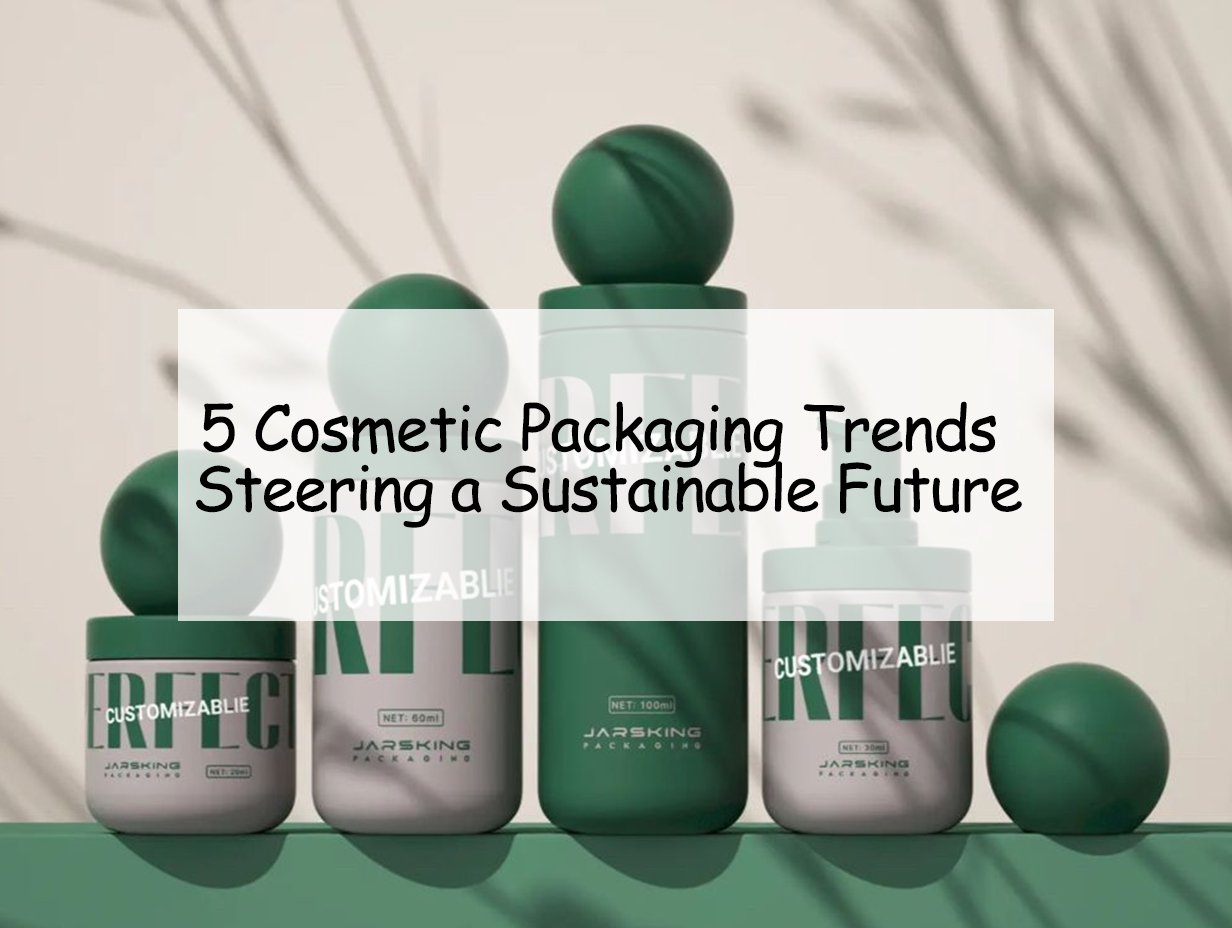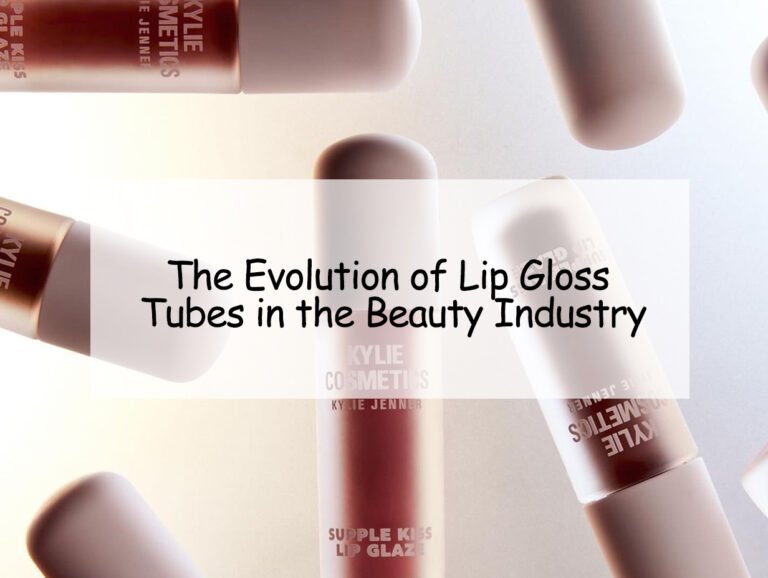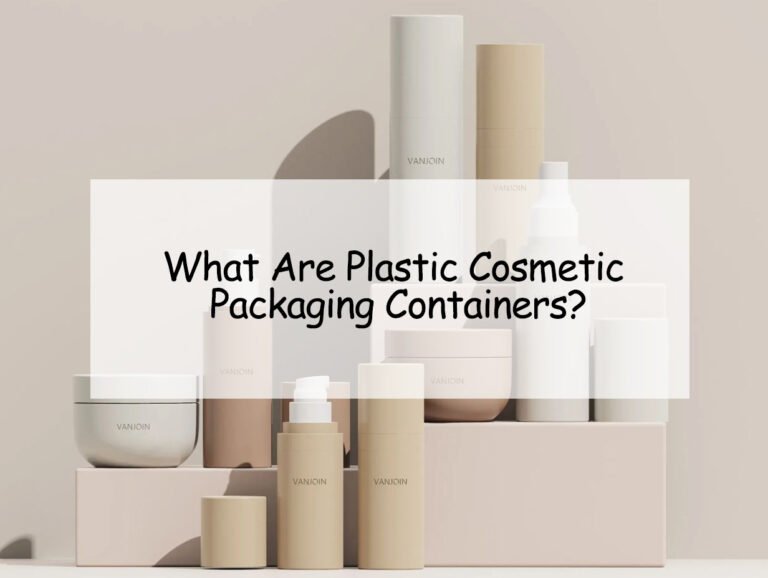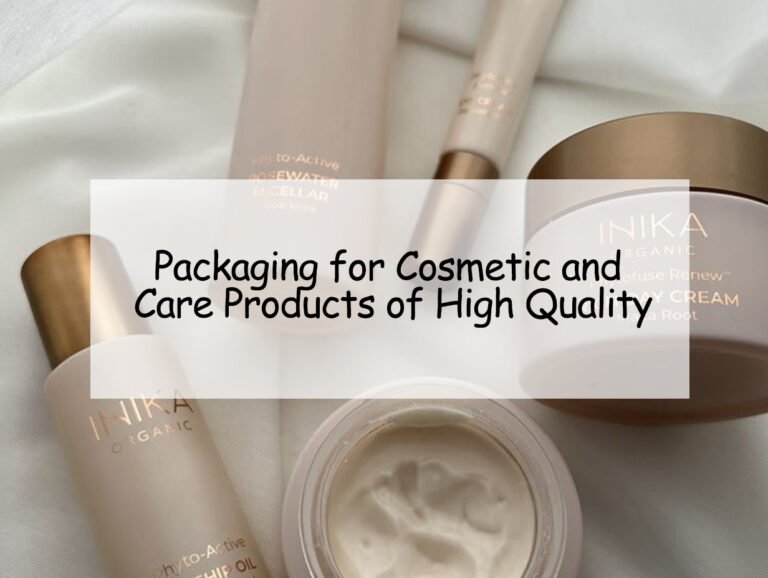The cosmetics industry embraces sustainability for a greener tomorrow. Explore trends shaping eco-friendly packaging solutions.
Cosmetic packaging trends focus on recyclability, biodegradability, and innovation to lead the industry towards a sustainable future.
Embracing these trends is crucial for aligning with environmental goals and consumer expectations.
What is the future of sustainable packaging1?
Sustainable packaging is a priority as demand for eco-friendly options grows.
The future promises innovation in recyclable materials2, closed-loop systems3, and minimalistic designs4 to reduce environmental impact across industries.
Innovations Driving the Future
I see sustainable packaging evolving rapidly, focusing on:
Recyclable Materials
The drive for 100% recyclable packaging uses advanced materials that meet performance needs. Brands seek innovative solutions reducing waste without sacrificing quality.
Closed-Loop Systems
Closed-loop systems aim to minimize waste through the reuse of materials, encouraging recycling and reducing landfill contributions. Companies strive to optimize these loops.
Minimalistic Designs
Adopting minimalism reduces material usage, emphasizing simplicity and functionality. Simplified designs cut down excess, benefiting both the environment and cost efficiency.
| Focus | Benefit |
|---|---|
| Recyclable Materials | Waste reduction, quality retention |
| Closed-Loop Systems | Maximizes material reuse, minimizes landfill |
| Minimalistic Designs | Reduces excess, enhances cost efficiency |
These innovations bolster the transition to a sustainable packaging future.
What are the future trends in packaging?
Anticipating trends prepares industry players for changes and opportunities.
Upcoming packaging trends include smart technology5 integration, personalized experiences, and eco-innovations6 to meet modern consumer demands.
Trends Transforming Packaging
From my perspective, these emerging trends will redefine packaging:
Smart Technology
Smart packaging with QR codes and sensors enhances consumer interaction and transparency. It allows brands to provide rich content and maintain communication with users.
Personalization
Customized designs cater to individual preferences, fostering a stronger brand connection. Advances in printing and design tech facilitate bespoke and flexible packaging options.
Eco-Innovations
Sustainability remains focal, with unique materials and processes emerging. This includes biodegradable films and alternative adhesives that reduce environmental impact.
| Trend | Advantage |
|---|---|
| Smart Technology | Consumer interaction, rich content delivery |
| Personalization | Strong brand connection, bespoke options |
| Eco-Innovations | Reduced impact, alternative materials |
Adopting these trends ensures competitiveness and consumer alignment.
What is the most sustainable packaging for cosmetics?
Sustainable choices align with eco-conscious consumer values.
Recyclable glass, biodegradable plastics7, and aluminum are the forefront materials offering eco-friendly packaging solutions for cosmetics.
Evaluating Sustainable Materials
I've found these materials pivotal for sustainable cosmetics packaging:
Recyclable Glass
Glass is renowned for endless recyclability and premium aesthetics. Its protective nature preserves product quality while upholding sustainability commitments.
Biodegradable Plastics
Biodegradable options reduce plastic footprint by breaking down naturally. Using plant-based resources adds to their eco-friendly credentials.
Aluminum
Aluminum's strength and lightweight features make it an ideal choice. Recyclability ensures minimal environmental effect during and after its lifecycle.
| Material | Sustainable Benefit |
|---|---|
| Recyclable Glass | Premium look, endless recyclability |
| Biodegradable Plastics | Natural decomposition, renewable resources |
| Aluminum | Lightweight, sustainable recyclability |
These materials provide effective solutions for sustainable beauty packaging.
What is the future of sustainable packaging to 2026?
Projecting future developments aids strategic planning.
By 2026, sustainable packaging will emphasize circular economies8, biodegradability, and minimalistic, smart solutions for environmental and economic benefits.
Strategic Developments
In forecasting towards 2026, these key strategies will shape the industry:
Circular Economies
Emphasizing resource reuse and renewability, circular economies ensure sustainability by keeping materials in use for longer durations.
Biodegradability
New developments increase biodegradable material efficiency9 and availability. These options further reduce reliance on traditional plastics.
Minimalism & Smart Solutions
Utilizing minimalistic design and integrating smart features enhance functionality while lowering resource use, meeting both consumer and environmental needs.
| Aspect | Future Focus |
|---|---|
| Circular Economies | Resource reuse, material longevity |
| Biodegradability | Enhanced efficiency and availability |
| Minimalism & Smart Solutions | Lower resource use, enhanced functionality |
These strategies ensure sustainable advancements towards 2026.
What are the packaging design trends for 2026?
Design trends guide brand strategy and market relevance.
Packaging designs in 2026 will feature innovative aesthetics10, interactive elements11, and sustainable practices to meet evolving consumer expectations.
Future-Forward Design Elements
Envisioning 2026’s design landscape, I foresee:
Innovative Aesthetics
Emerging designs will utilize unique shapes, textures, and colors, pushing creative boundaries and enhancing shelf appeal.
Interactive Elements
Augmented reality (AR) features and connectivity boost engagement, providing immersive brand experiences and information access.
Sustainable Practices
Designs will extensively incorporate eco-friendly materials and methods, reinforcing a commitment to sustainability from conception to disposal.
| Design Element | Impact |
|---|---|
| Innovative Aesthetics | Enhanced creativity and shelf appeal |
| Interactive Elements | Immersive consumer experiences |
| Sustainable Practices | End-to-end commitment to eco-friendliness |
Integrating these elements keeps designs relevant and impactful.
What are the goals for 2025 packaging?
Setting clear goals ensures strategic alignment.
The 2025 packaging objectives focus on reducing waste, improving material efficiency, and increasing sustainable content across industries.
Defining Packaging Objectives
Leading up to 2025, targeted goals drive progress:
Waste Reduction
Minimizing waste throughout the lifecycle is a priority, pushing for better materials and designs optimizing reuse and recyclability.
Material Efficiency
Developing lighter yet durable materials improves efficiency. This approach achieves packaging needs with fewer resources, promoting conservation.
Sustainable Content
Ensuring increased biodegradable and recyclable content aligns with broader sustainability commitments. Upgrading these content percentages presents a clearer eco-positive image.
| Goal | Target Achievement |
|---|---|
| Waste Reduction | Lifecycle waste minimization |
| Material Efficiency | Lighter, durable materials |
| Sustainable Content | Higher recyclable, biodegradable content |
Achievement of these goals will steer the industry towards a responsible future.
Conclusion
Sustainable packaging trends and goals for 2026 drive the industry towards more eco-friendly solutions. Innovative designs and materials underpin this transformative journey.
-
Explore the advantages of sustainable packaging and how it can positively impact the environment and businesses. ↩
-
Discover cutting-edge recyclable materials that enhance sustainability and performance in packaging. ↩
-
Learn about closed-loop systems and their role in minimizing waste and promoting recycling. ↩
-
Understand how minimalistic designs can reduce waste and improve cost efficiency in packaging. ↩
-
Find out how smart technology is enhancing consumer interaction and transparency in packaging. ↩
-
Stay updated on the latest eco-innovations that are transforming the packaging industry for sustainability. ↩
-
Discover how biodegradable plastics can reduce environmental impact and support sustainability. ↩
-
Explore the concept of circular economies and their importance in sustainable packaging practices. ↩
-
Learn about methods to enhance material efficiency in packaging and reduce resource consumption. ↩
-
Discover how innovative aesthetics are shaping the future of packaging design and consumer appeal. ↩
-
Find out how interactive elements are creating immersive experiences for consumers in packaging. ↩
2.png)





